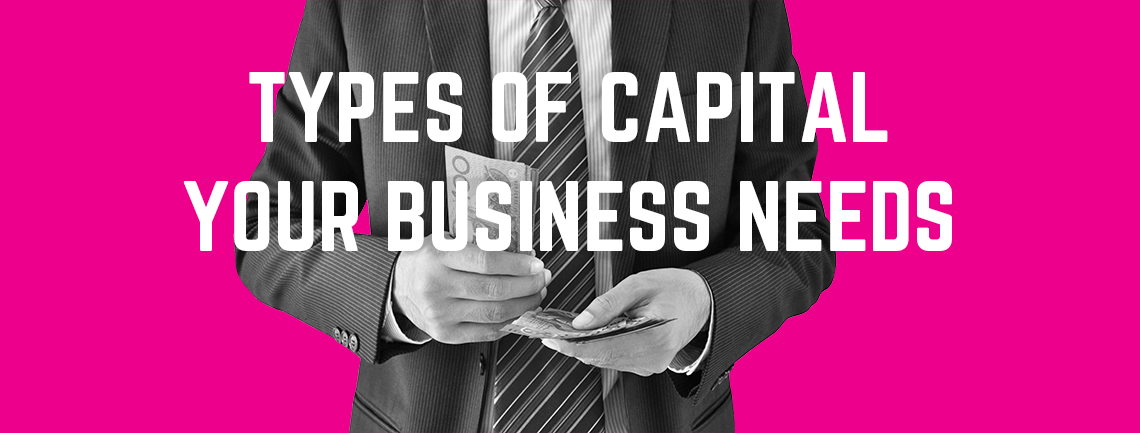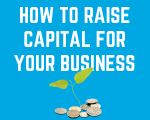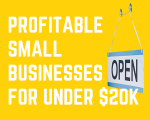Types of Capital Your Business Needs
Understand how the different kinds of capital can help you run and grow your venture. April 29, 2019Capital is a fundamental part of every business. Understanding how capital works and how to manage it can help you grow a sustainable venture.
There are different types of capital, from financial to human, that any business needs in order to survive. Let’s take a more in-depth look of them!
Table of Contents:
- What is Capital
- The Importance of Capital in Business
- Types of Capital in Business
- How to Make the Capital Work for Your Business
The economic definition of capital in business is any assets such as funds, equipment, factories, employees, branding, owned materials used for production, and even debt that is owned by the company.
Grasping concepts such as human and manufactured capital is just as important as maintaining the financial health of a business. The assets in а business aren’t simply defined by the money it has available. It can also be a stock or ownership in a given company.
Unlike money, capital is used to generate long-term wealth.
For example, let’s say you own a gardening business. You can generate wealth by mowing lawns, but you don’t own a lawnmower. So, you go and buy one. By purchasing the lawn mower you’re adding an asset to your company’s capital, which can be used to generate wealth. The lawnmower is part of your venture’s manufactured capital.
But why is understanding capital so important for a businessperson you might ask. After all, hiring an accountant to take care is the best way to keep your assets under control. And it is. Except not every business can afford to hire a professional to look after their assets, and it’s also best to know what you’re looking for when you’re going through the reports.
Understanding how the capital in your company is being utilized can help you with saving money, renting or selling unused manufactured capital, improving the workflow and production process.
Other benefits of understanding capital are that it can help you see if someone in your company is stealing or if your organisation is losing money because of an overlook.
As you can see, familiarising yourself with the types of capital in business is important if you want to run a sustainable venture.
As we mentioned briefly in the introduction of the article, the term capital goes way beyond cash. While you can hire accountants to take care of the assets, having a basic understanding of different types of capital in business can help you run a successful firm.
Financial Capital
Money, bonds, shares – this is how a company’s success is measured. Financial capital can be acquired through a couple of different methods. Investments, loans and crowdfunding to name a few are all ways to increase the productive abilities of a company.
Your business’ financial capital directly influences the performance of your company and your employees. Having a budget to spare for new projects, coming up with ways to innovate in your niche and growing a sustainable company all rely on good financial support.
There are a couple of different ways to make sure your company has enough financial capital to fund its goals. Some of them might surprise you, but things like having a strong brand and a solid reputation can help a lot.
Other ways to increase your financial assets is to run a sustainable company and making sure that you’re making a positive impact on your local community.
Human Capital
However you’re looking at business, the truth is that the individuals working for your company are most productive when they’re happy and feel like they’re contributing to the development of the company with their work.
Related: Mentoring and Coaching in the Workplace
Human capital is the skills, joy, intellectual output and other factors like health and knowledge that your employees possess.
More and more companies and investors are recognising intellectual and human capital as an important part of any business.
In order to keep your employees performing at their best, investing in them and using your financial assets to improve their life, workplace and help them to grow professionally are all ways to build a strong human capital in your business.
It all boils down to being a great leader for the people working in your company.
Natural Capital
Any business leaves some amount of waste behind and uses some type of natural resource in order to operate. In a point where more and more countries in the world are trying to control and limit their carbon footprint, controlling the resources your company is using is beneficial to the planet and to your local community.
As an organisation, you need to be aware of in order to control it. For example, you can stop using plastic in your office, use renewable resources, and even sponsor such events in your local community.
Manufactured Capital
While it might not get clear from its name, manufactured capital includes things like buildings, technologies and infrastructure. To put it simply – manufactured capital is everything needed to produce a product, but it doesn’t end up in the final product.
To take our example from earlier in the article (the one with the gardening business) your lawnmower is a part of your manufactured capital. So, this is what an organisation is using in order to provide a service or to create a product.
Properly managing your manufactured capital can improve the quality of your products or services, cut down cost on production or even increase cash flow by leasing technology that is not being utilised.
Asset managing is a vast and complicated field that is a part of accounting. While you can manage your small buisness’ assets without a degree, we advise hiring an experienced accountant to take care of this side of the business.
There are ways to go around this whole process and get additional help if you partner up with a franchising company. The positive aspects of this partnership are numerous and just to name a few – the companies usually book clients, supply you with marketing materials, give financial aid, etc.
If this solution is something that interests you, contact us with any question you might have about franchising. As a leading company in Australia, we can help you set, grow and build a sustainable business. Check out our franchises options here.
About the Authors
Created by Gratsiela Borisova, project manager of the Fantastic Services franchise sites in Australia and the UK, and Evgeni Asenov, blog strategist for Fantastic Services Australia. Both of them produce business-related content and share the ins and outs of starting and running a business in Australia.


















